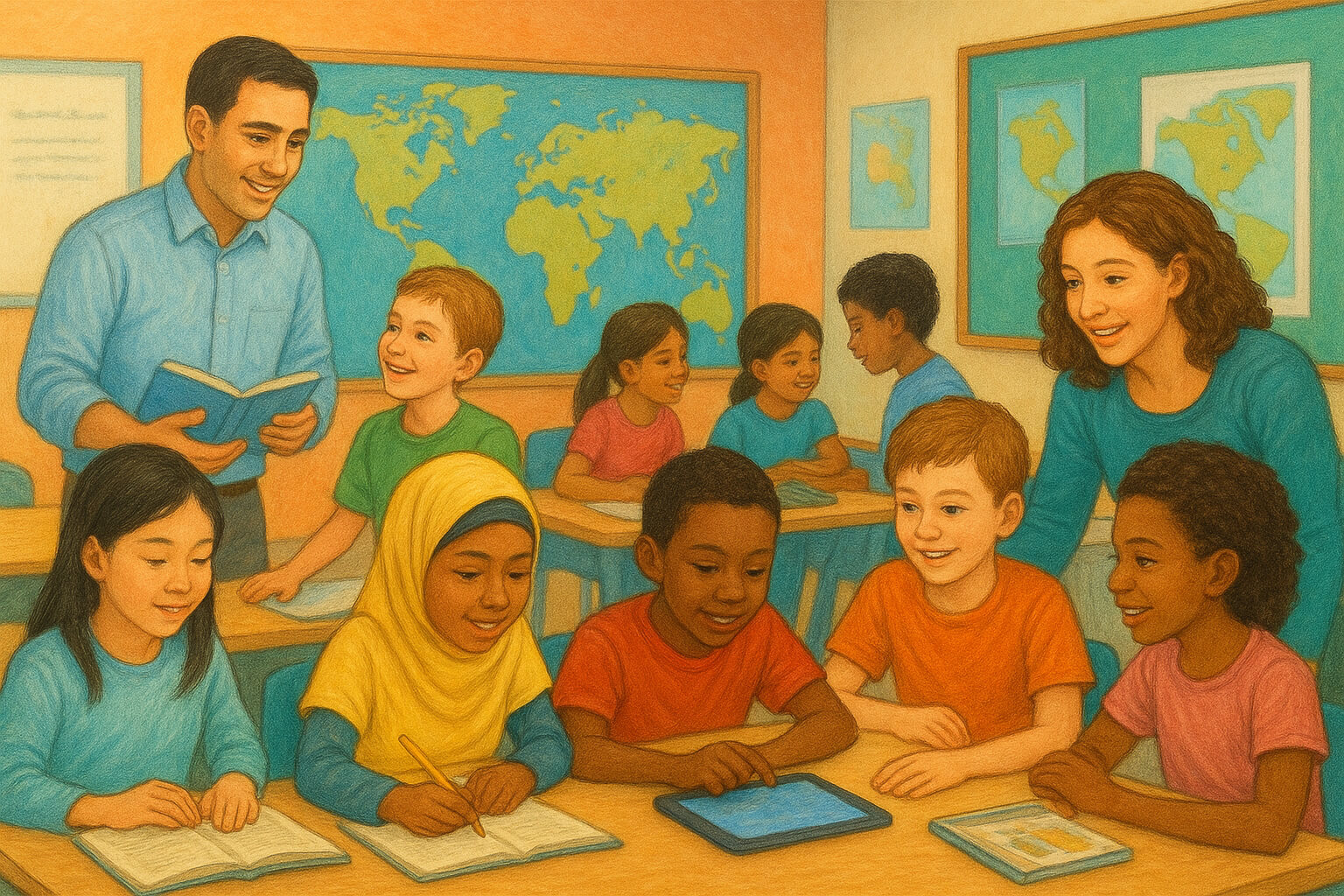Global Education Initiatives Reaching Every Child

Access to quality education remains a significant challenge for millions of children worldwide. Inequalities in resources, geographic limitations, and socio-economic barriers prevent many children from reaching their full potential. Global education initiatives are essential in bridging this gap, ensuring that every child has the opportunity to learn, grow, and thrive, regardless of their circumstances.
Why Education Matters
- Education is not just about academic learning—it is a powerful tool for social and economic empowerment. It provides children with the knowledge and skills they need to escape poverty, improve their health outcomes, and participate meaningfully in their communities. Programs such as UNESCO’s Education for All and UNICEF’s Education Initiatives work tirelessly to ensure that education is inclusive, equitable, and accessible to all children around the world.
- Early education is particularly crucial. Research consistently shows that early childhood education has a profound impact on a child’s long-term academic success. Foundations built in the early years help children develop cognitive, social, and emotional skills that carry through to their later years.
Addressing Socio-Economic Barriers
- For many children, attending school is not an option due to poverty, child labor, or displacement. These barriers create a vicious cycle, where children are unable to access education, which further limits their life opportunities. Programs that support refugee livelihoods and self-sufficiency are crucial in providing stability for displaced children and families, ensuring they have the resources and support they need to continue their education.
- Microfinance initiatives have also proven to be successful in empowering families in poverty. By providing small loans to entrepreneurs, families are able to afford essential school supplies and reduce financial barriers that hinder children’s education.
Innovations in Learning
- In today’s digital age, technology has revolutionized how children access education, particularly in underserved areas. Online platforms, mobile learning apps, and STEM-focused curriculums are transforming traditional learning methods. These innovations provide opportunities for children in remote regions to receive quality education despite geographical limitations.
- Initiatives like The Future of Learning: Innovations in Education show how personalized instruction, interactive learning tools, and teacher training programs are reshaping how students engage with content. These innovations improve engagement, outcomes, and the overall educational experience for children.
Inclusive Education for All
- Global education initiatives are increasingly focusing on inclusivity, ensuring that every child, regardless of their ability, receives the support they need. Children with disabilities or learning differences often face discrimination or lack access to suitable educational environments.
- Understanding learning disabilities and support systems provides guidance on creating inclusive curricula and accessible classrooms that accommodate diverse learning needs. Character education and social-emotional learning programs also play an important role, as they nurture values like empathy, resilience, and teamwork, all of which are critical for personal and social development.
The Role of Policy and Advocacy
- For education to be accessible to all, robust government policies and international advocacy are crucial. Policies that address gender inequalities, support education in remote areas, and provide social safety nets can significantly increase enrollment and retention rates.
- For example, initiatives that focus on empowering youth through vocational training provide older students with the practical skills needed to secure meaningful employment. Vocational programs help break the cycle of poverty and equip youth with skills they can use to support their families and contribute to their communities.
Global Collaboration for a Global Cause
- Education is a collaborative effort. Governments, non-governmental organizations (NGOs), and local communities must work together to identify educational gaps and ensure that resources, training, and infrastructure reach the children who need them the most.
- Organizations like UNESCO and UNICEF, along with local charities, are playing a key role in identifying educational gaps and providing solutions. These collaborative efforts demonstrate that education is not just a tool for individual empowerment but also a catalyst for societal growth and poverty alleviation. As research on the impact of education on poverty reduction shows, education is one of the most effective ways to break the poverty cycle.
Take Action
You don’t have to be a policy maker or a large organization to make a difference. There are many ways individuals can contribute to global education efforts:
- Donate or volunteer with organizations providing educational resources.
- Advocate for policies that prioritize education for underserved populations.
- Raise awareness about the barriers that prevent children from accessing education and the importance of learning opportunities for all.
By supporting global education initiatives, we can help create a world where every child, regardless of geography, gender, or socio-economic background, has access to a quality education. This fosters equality, empowers generations to come, and creates a brighter future for us all.
References & Further Reading
